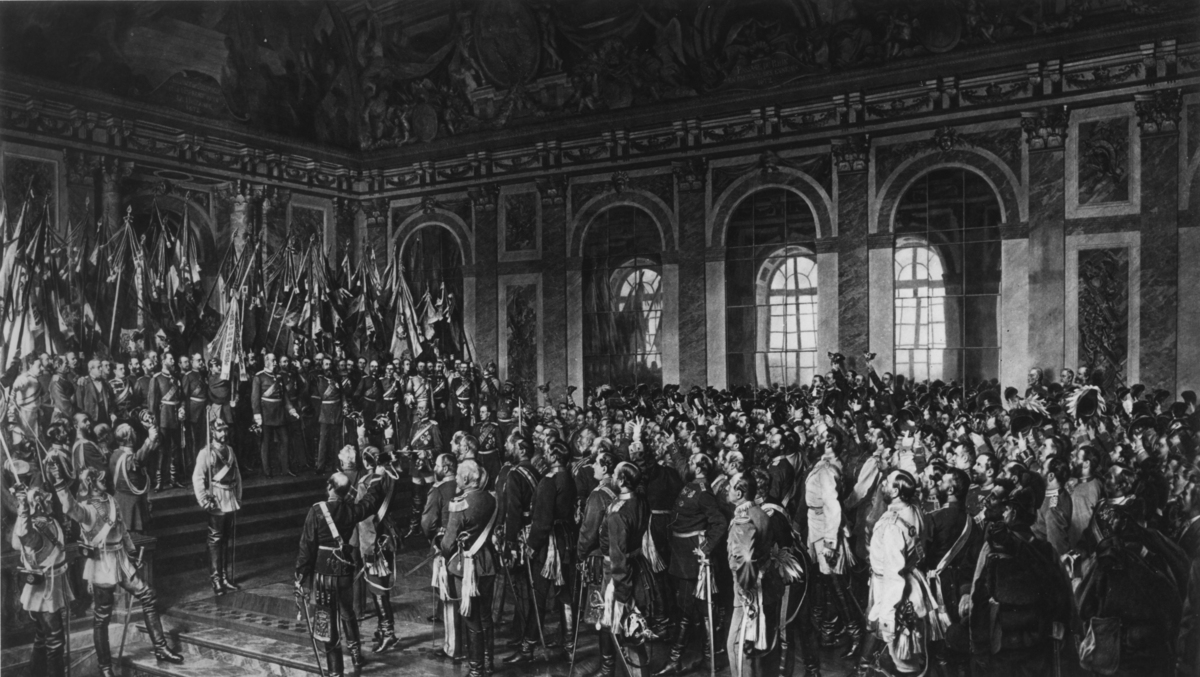Abstract
This copperplate gravure by Anton von Werner depicts the same scene
shown in an oil painting by the same name, the so-called palace version
(1877) of The Proclamation of the German
Empire on January 18, 1871, in the
Hall of Mirrors at Versailles. The oil painting hung in Berlin City
Palace and was destroyed during the Second World War. The “palace
version” of the oil painting was commissioned by the Grand Duke of
Baden, along with other German princes, and presented to Kaiser Wilhelm
I on March 22, 1877, as a surprise gift for his 80th birthday. The scene
was a relatively accurate record of the actual historical event that
Werner had been forced to witness, six years earlier, from the back of
the hall (note that he inserted himself into the picture at the lower
right). Indeed, pictorial accuracy was an obsession for Werner: in
preparation for the painting, he executed no fewer than 128 individual
portraits, each of which was cataloged so that viewers could identify
specific figures within the large crowd of soldiers and dignitaries. In
its straightforwardness and lack of drama, the painting accords with
Werner’s own memory of the proclamation as a short, dull affair to which
he had been summoned on short notice in the dead of winter. Perhaps the
smallest glimmer of enthusiasm can be seen in his decision to depict the
young officers at the very moment that they raised their helmets to
cheer the newly proclaimed emperor. Otherwise, Werner allowed the massed
military regiments—seen trooping through the palace’s “Salon de la
Paix”—to overshadow the figures of Otto von Bismarck and Helmuth von
Moltke (Chief of the Prussian General Staff). It is also noteworthy
that, consistent with the moderate liberal inclinations of the Crown
Prince and the Grand Duke of Baden, who took the lead in offering Werner
this commission, this version balances the “national” and the “liberal”
aspects of the event and downplays the ample opportunities afforded by
the venue for expressions of German chauvinism (although contemporary
viewers surely would have noticed that Louis XIV’s victories are
depicted in murals on the ceiling). In this version, Wilhelm appears as
primus inter pares with the other
German princes for the first and last time, and it is clear that Werner
took great pains to capture the details of the various military uniforms
of Germany’s federal states.
